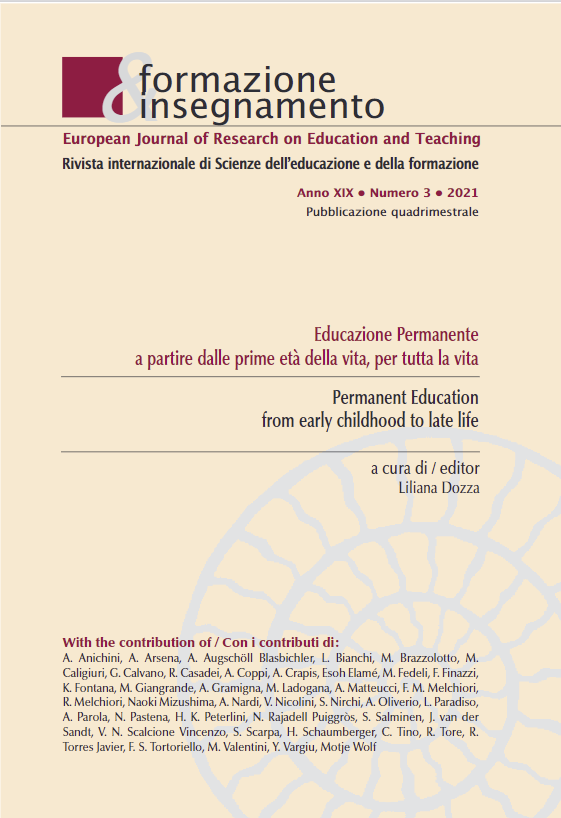Citizenship education, cultural heritage pedagogy: reflections on social pedagogy
DOI:
https://doi.org/10.7346/-fei-XIX-03-21_14Abstract
In today’s society, characterized by a weakening of the civic sense and deconstructing the identity dimension, it is again necessary to define planning paths capable of listening to and respecting differences, rethinking citizenship as a relational, intersubjective, cultural dimension, starting from the educational paradigm. The need to rethink citizenship, which has become a cognitive place for reflection and proposal, shows the need to rethink citizenship, its exercise and citizenship. An active pedagogy, which allows to break down the barriers between school disciplines and those between the school and the outside
world; accompany the school programs and fight against school failure, grant to obtain a pedagogy of the project Within such a perspective, the pedagogy of cultural heritage, not being a subject but, rather, an approach capable of producing a culture of emancipation and self-regulation of behavior, becomes a tool for promoting education to human rights and to globality. We hear again the echo of the Deweyan consideration: learning for democracy. After all, for education to cultural heritage, as for citizenship, these are concepts that have undergone a profound revision over time, which has redefined and areas of research.
By assuming the new meanings and roles produced in contemporary competitions, education in cultural heritage becomes the agent of the processes of education to citizenship and the construction of European identity, thus acquiring on the individual and on society.
Downloads
Published
How to Cite
Issue
Section
License
Copyright (c) 2022 Pensa MultiMedia

This work is licensed under a Creative Commons Attribution 4.0 International License.
Formazione & insegnamento is distributed under Attribution 4.0 International (CC BY 4.0).
For further details, please refer to our Repository & Archiving Policy, as well as our Copyright & Licensing Terms.





